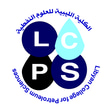Information Technology
The program leading to a Bachelor of Science degree in Information Technology (IT) equips students for a successful career in IT and graduate studies in diverse disciplines. Emphasizing technical foundations, problem-solving skills, and hands-on practice, the curriculum equips students to create and enhance IT solutions using both established and emerging technologies. Covering key areas such as programming, web systems, networking, human-computer interaction, databases, information management, and project management, the program incorporates a strong focus on professional development, including technical communication, ethical considerations, and teamwork.
Program educational objectives
In the course of their careers, graduates of the Information Technology program will:
Work productively as problem solvers and providers of integrated IT solutions.
Remain current in their profession through lifelong learning, including graduate school.
Exhibit teamwork and leadership as well as exercise their profession with the highest level of ethics and social responsibility.
Requirements for the major in information technology, B.S. program
To earn the Bachelor of Science degree with a major in information technology students must complete a minimum of 128 credits and meet the following requirements:
In order to graduate on-schedule without taking additional courses, it is highly recommended that students meet with an Undergraduate Academic Adviser concerning the selection of all of their general education courses.
Each candidate for LPSU baccalaureate will need to satisfactorily complete approved courses in each of the following areas: Foundations, Explorations, and Integration. For details, refer to the General Education Requirements section of the catalog. In order to satisfy both general education and other program requirements, in some of the general education areas students should select from the courses listed below.
Foundations:
Writing Foundations (WRT 1060)
Formal Reasoning (Satisfied by MTH 1554 or MTH 1222; see Mathematics and sciences)
Explorations: One course from each of the seven Explorations areas
Arts
Language and Culture
Global Perspective
Literature
Natural Science and Technology (Satisfied by approved science elective; see Mathematics and sciences)
Social Science
Western Civilization (Satisfied by PHL 1310); see Additional Major Requirements)
Integration
Knowledge Applications (Satisfied by APM 1663; see Mathematics and sciences)
Writing Intensive and Capstone
Capstone (Satisfied by CSI 4999; see Required professional subjects)
Writing Intensive in the Major (Satisfied by CSI 4999; see Required professional subjects)
Writing Intensive in General Education (may be met by an approved course in the Explorations area)
Additional Major Requirements
All students must complete the following requirement.
Professional Ethics: PHL 1310 - Introduction to Ethics in Science and Engineering
General Education requirements
Mathematics and sciences
MTH 1554 - Calculus I (4) or MTH 1222 - Calculus for the Social Sciences (4)
STA 2221 - Introduction to Statistical Methods (4)
APM 1663 - Mathematics for Information Technology (4)
Approved science elective (4)*
*Approved science electives for information technology majors are: BIO 1200, BIO 1300, CHM 1440 and CHM 1470, ENV 3080, PHY 1510 and PHY 1100.
Information technology core
CSI 1210 - Problem Solving Using VBA and Excel (4)
CSI 1320 - Introduction to Python Programming and Unix (4)
CSI 2300 - Object-Oriented Computing (4)
CSI 2440 - Computer Systems (4)
CSI 2470 - Introduction to Computer Networks (4)
CSI 2999 - Sophomore Project (2)
Required professional subjects
CSI 3150 - Web and Mobile Systems (4)
CSI 3210 - User Experience Design (4)
CSI 3370 - Software Engineering and Practice (4)
CSI 3450 - Database Design and Implementation (4)
CSI 3480 - Security and Privacy in Computing (4)
CSI 3620 - Data Structures and Algorithms (4)
CSI 3660 - System Administration (4)
CSI 4160 - Integrated Computing Systems (4)
CSI 4430 - IT Project Management (4)
CSI 4999 - Senior Capstone Project (4)
Professional track
Select two courses from one of the following professional tracks
System Administration Track
CSI 3680 - Script Programming (4)
CSI 4660 - Enterprise System Administration (4)
Bioinformatics Track
BIO 3400 - Genetics (4)
CSI 4780 - Bioinformatics (4)
Game Development Track
CSI 3380 - Game Design (4)
CSI 4380 - Game Programming (4)
Cybersecurity Track
CSI 4460 - Information Security (4)
CSI 4480 - Information Security Practices (4)
CSI 4560 - Mobile Security (4)
CSI 4600 - Network Security (4)
CSI 4700 - Software Security (4)
Applications Development Track
CSI 4230 - Mobile and Smart Phone Application Development (4)
CSI 4510 - Advanced Web Design Application (4)
AI in Information Technology Track
CSI 4100 - Ethics and Bias in AI (4)
CSI 4150 - AI for IT Operations (4)
AI on Cloud Track
CSI 4150 - AI for IT Operations (4)
CSI 4240 - Cloud Computing (4)
Software Engineering Track
CSI 4370 - Software Verification and Testing (4)
CSI 4700 - Software Security (4)
Data Analysis Track
CSI 3820 - Data Visualization (3)
CSI 3860 - Contemporary Issues in Data Science (3)
CSI 4820 - Big Data Analysis with Cloud Computing (4)
Students following older catalogs will be able to count courses under one of the tracks listed above to satisfy their professional track requirements.
Professional training
Take 2 credits from one of the following courses:
CSI 4950 - Internship (2)
CSI 4955 - Industrial Project (2)
CSI 4995 - Undergraduate Research (2)
Communications
Choose one of the following courses:
COM 2403 - Group Dynamics and Communication (4)
COM 3300 - Communication, Culture, and Belonging (4)
COM 3401 - Communication in Organizations (4)
COM 3402 - Communication in Leadership (4)
Professional electives
Take 8 additional credits from the following courses:
Select CSI 2320, CSI 2330, CSI 2340, CSI 2350, CSI 2360, CSI 2810, or any 3000 or higher level CSI, BE, ECE, ISE, or ME designated courses. CSI 4950 cannot be used to fulfill the professional electives requirements. Courses at the 5000-level require approval of the instructor.
Students who have not taken CSI 1320 as part of the core requirement, for example due to transfers from another institution, can count CSI 2330 as part of the professional electives. They are encouraged to consider taking CSI 2330.
Major Standing
To enroll in 3000- or higher level courses and to become candidates for the degree of Bachelor of Science with a major in Information Technology, students must gain major standing. An application for major standing should be submitted prior to intended enrollment in 3000- or higher level courses. Students can obtain the major standing form from the SECS Undergraduate Advising Website. At the time that major standing is approved, students with majors of Pre-Information Technology will have their major changed to Information Technology. Approval of both a major standing application and change of major to Information Technology is required prior to enrolling in any 3000- or higher-level courses.
To gain major standing Information Technology, students must:
A) have an average GPA of 2.0 in the following mathematics and science courses: Either MTH 1222 or MTH 1554, APM 1663 and approved science elective.
B) have an average GPA of 2.0 in the following information technology core courses: CSI 1210, CSI 1320, CSI 2300, CSI 2440, CSI 2470 and CSI 2999.
C) have no more than two grades below C in the courses listed in A and B above.
D) have not attempted any course listed in A and B above more than three times.
E) have not repeated more than three different courses listed in A and B. Courses in which a W (withdrawal) grade is recorded will not be counted.
Conditional major standing may be granted in the semester in which the student will complete requirements A and B above.
Students who have questions about petition of exception, transfer credit, academic standing, major standing, or any other aspects of their degree programs should consult an academic adviser and other relevant sections of the undergraduate catalog.
Performance requirements
Satisfactory completion of the program requires an average grade of at least 2.0 within each group: mathematics and sciences, information technology core, and professional courses (including required professional subjects, professional track, communications, and professional electives). Within the professional courses at most two different courses may be repeated, a total of three attempts per course is permitted, and at most two grades below C are permitted. A grade of C or better in CSI 4999 (Senior Capstone Project) must be received.
Sample information technology schedule
Students entering the School of Engineering and Computer Science with the required background may follow a schedule such as the one indicated below. However, students will need additional time to complete the program if they do not have the required background upon entrance to the program.
Freshman year
Fall semester – 16 credits
CSI 1320 - Introduction to Python Programming and Unix (4)
MTH 1222 - Calculus for the Social Sciences (4) or MTH 1554 - Calculus I (4)
General education (4)
General education (4)
Winter semester – 16 credits
CSI 1210 - Problem Solving Using VBA and Excel (4)
CSI 2300 - Object-Oriented Computing (4)
STA 2221 - Introduction to Statistical Methods (4)
General education (4)
Sophomore year
Fall semester – 16 credits
APM 1663 - Mathematics for Information Technology (4)
CSI 2470 - Introduction to Computer Networks (4)
General education (4)
General education (4)
Winter semester – 18 credits
CSI 2440 - Computer Systems (4)
CSI 2999 - Sophomore Project (2)
Approved science elective (4)
General education (4)
General education (4)
Junior year
Fall semester – 16 credits
CSI 3150 - Web and Mobile Systems (4)
CSI 3210 - User Experience Design (4)
CSI 3480 - Security and Privacy in Computing (4)
Communications (4)
Winter semester – 16 credits
CSI 3370 - Software Engineering and Practice (4)
CSI 3450 - Database Design and Implementation (4)
CSI 3620 - Data Structures and Algorithms (4)
Professional track (4)
Senior year
Fall semester – 14 credits
CSI 3660 - System Administration (4)
Professional training (2)
Professional track (4)
Professional elective (4)
Winter semester – 16 credits
CSI 4160 - Integrated Computing Systems (4)
CSI 4430 - IT Project Management (4)
CSI 4999 - Senior Capstone Project (4)
Professional elective (4)


